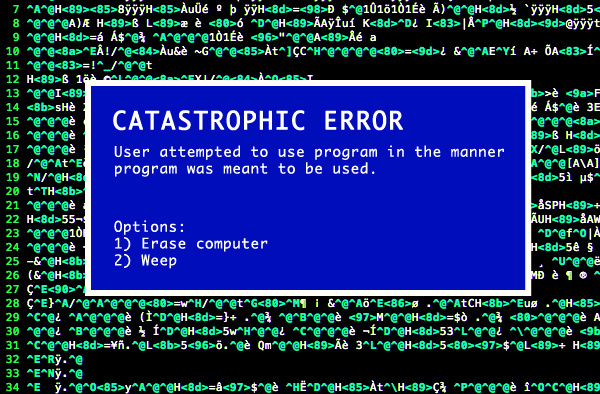- cross-posted to:
- [email protected]
- cross-posted to:
- [email protected]
That bridge example hits home, but it doesn’t really reflect reality. It doesn’t mention that the bridge is used while it’s being constructed.
But of course nobody tells that to the construction workers or the designers.
Yeah we can’t stop traffic, it’s in production so we just can’t stop the cars!
Just buy our vendor’s/partner’s SaaS solution and all of this magically goes away!
But is it no-code so I can fire all my developers?
Oh, it’s drag-and-drop only with no keyboard support whatsoever. Changing a variable is hidden beneath 12 menus, and it uses a proprietary IDE that locks up after every click. Looks great in screenshots though!
You can 100% fire all your developers!*
*As long as your business users have loads of free time and the skillset of developers.
SaaS vendor about to be DoS’d: “(chuckles) I’m in danger”
Is DDOSing really a problem anymore? Any CDN worth their salt should handle even massive DDOS attacks no problem.
Yet it still happens. OpenGameArt just recently recovered from a DDoS. If you build a better mousetrap…
It still regularly happens, every system has a breaking point.
This is all incredibly (funny, and) poignant, and, as a programmer, I agree. But any career has its level of trimming Satan’s pubes, and I’m really happy to be trimming my share.
It’s a funny read.
IMO, the bridge example is more like joining a maintenance team looking after an old bridge. I’m sure there could be good metaphors of the old guy that hammered 300 of the original rivets, and can tell an interesting story about toilet breaks 250ft in the air. And new government regulations both about bridges and conservation of protected buildings/structures that somehow clash or whatever.
Building a bridge would be more of a startup/new project.It does feel like it takes the most esoteric circumstances, as well.
Same could be said for “Steve that has to dig a ditch” seeing competitions of plant operators doing back flips in forestry machines meant to scale mountains.It’s just that programming is a very accessible hobby that can transition into a career (how most programmers got a career, tbh), but is also the thing that modern business/industry/entertainment all depends on.
This article makes the case that corporate programming sucks.Yeah, programming sucks, but there are many things I love about it, most of all that human interaction is minimal and it’s relatively well-paid.
The most frustrating thing to me about programming is that there’s always a problem that crops up in the code you use. Bugs are a part of programming, but nearly every project I’ve worked on or started and used third-party code was slowed down, trying to figure out why that dependency wasn’t doing what it should’ve been. It’s great that it existed in the first place, but sometimes you run into one that has to be rewritten in order to work thus becoming your new project 😢






